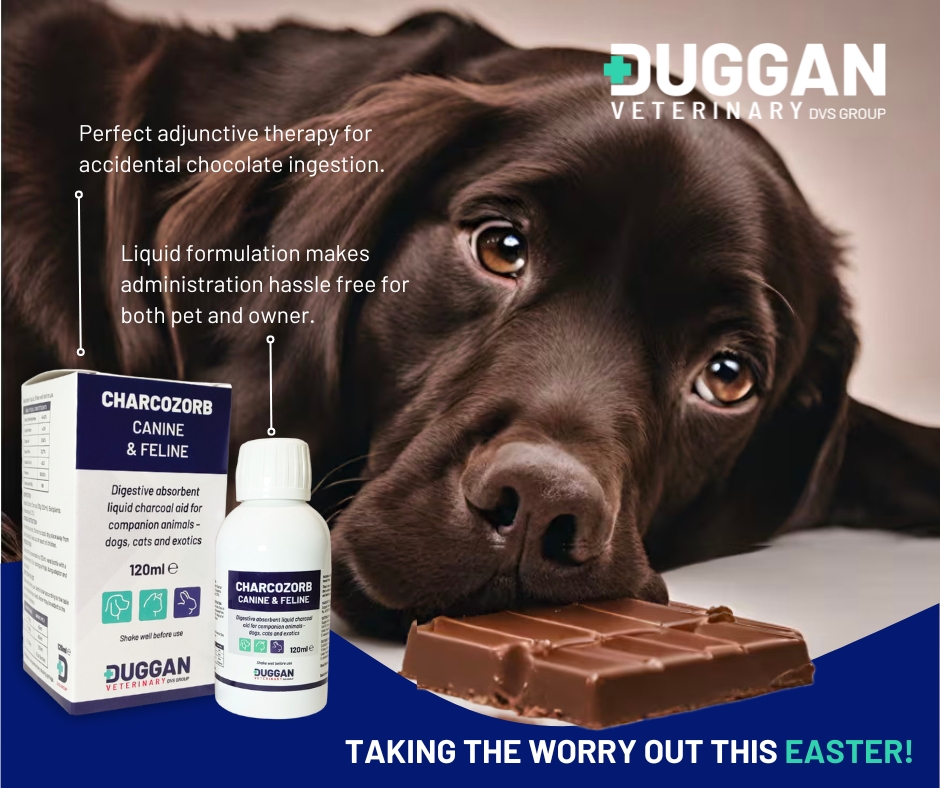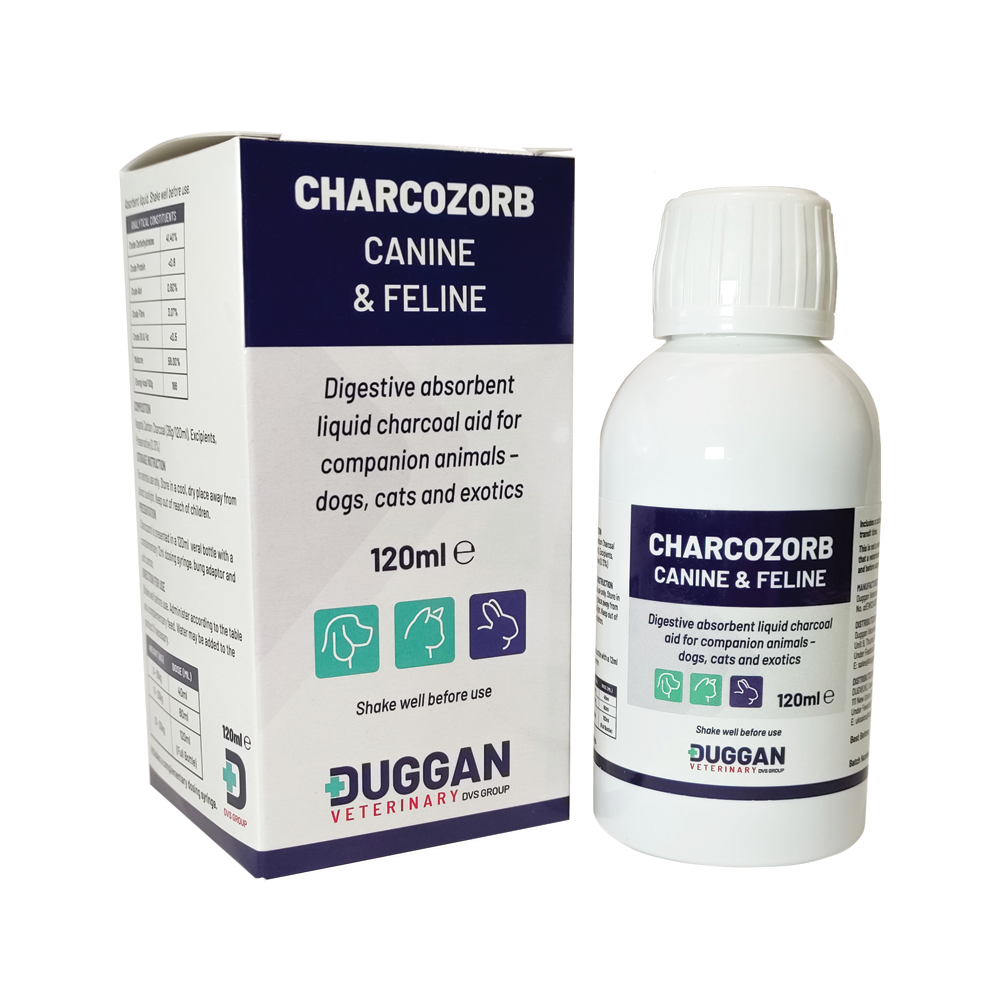Suspected poisoning is a common reason for dogs to present to veterinary practices. The ingestion of raisins, grapes, macadamia nuts, onions, xylitol and chocolate can lead to signs of intoxication in dogs.
Chocolate contains the methylxanthines theobromine and caffeine. The amount of methylxanthines present depends on the type of chocolate – chocolate with a high cocoa content, such as baking chocolate and dark chocolate, contains a significantly higher concentration of methylxanthine than milk chocolate. Chocolate toxicity results from the methylxanthines causing gastrointestinal (e.g. vomiting), cardiovascular (e.g. tachycardia) and central nervous signs (e.g. agitation and seizure).
A UK study, Noble et al. 2017, showed that there was an increased risk of canine chocolate exposure at Christmas and Easter.
The study reviewed cases of chocolate exposure in dogs presented to a large network of UK veterinary practices between 2012 and 2017. Health records were collected from 229 UK veterinary practices, across 500 premises. Cases were included in the study if they matched a definition of potential chocolate exposure whereby ingestion triggered either specific treatment or a plan of monitoring for clinical signs of methylxanthine toxicity.
To analyse risk periods, incidences were categorised to indicate whether a consultation occurred from one week before to two weeks after Christmas, Easter, Valentines and Halloween. In total, 386 incidences from 375 individual animals between November 2012 and May 2017 were identified as matching the chocolate exposure case definition.
Documented treatments included activated charcoal (121 cases), apomorphine (114 cases), intravenous fluid therapy (12 cases) and anti-emetics (31 cases, usually following apomorphine). Activated charcoal therapy often followed induced emesis but in 65 cases, it was the sole therapy.
The study concluded that chocolate ingestion has a unique seasonal pattern which merits highlighting this risk to clients, particularly in the run-up to Christmas and Easter as chocolate becomes more accessible within the household.
Charcozorb is distributed exclusively in the UK by Duggan Veterinary Supplies. Charcozorb contains activated charcoal, which is proven to assist in absorbing toxins from the digestive tract in cats, dogs and rabbits. This makes it the perfect adjunctive or sole therapy for accidental chocolate ingestion in dogs. Charcozorb’s liquid formulation makes administration hassle free for both pet and owner, meaning pets can enjoy a safe and happy time this Easter.
Source: Noble PM, Newman J, Wyatt AM, Radford AD, Jones PH. Heightened risk of canine chocolate exposure at Christmas and Easter. Vet Rec. 2017 Dec 23;181(25):684. doi: 10.1136/vr.104762. Epub 2017 Dec 20. PMID: 29263290; PMCID: PMC5749306.

